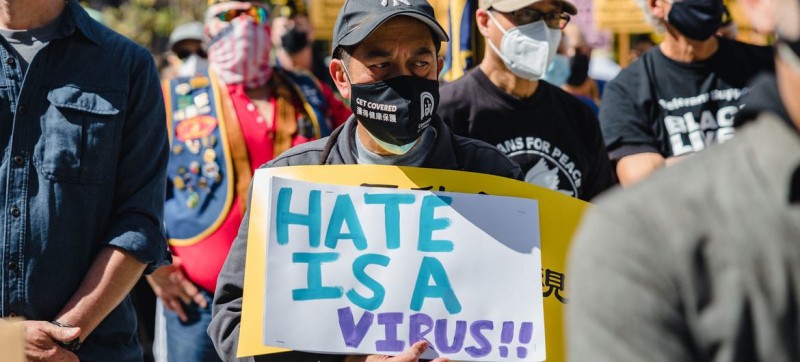Play video

© Unsplash/Jason Leung Demonstrators protest in the United States.
The Council met specifically to discuss “the values of human fraternity in promoting and sustaining peace”, building on a 2019 declaration co-authored by Pope Francis, head of the Catholic Church, and the Grand Imam of Al-Azhar Al Sharif, Ahmed Al-Tayeb, Chairman of the Muslim Council of Elders, and also considered the highest authority in Sunni Islamic thought.
The declaration urges religious and political leaders to bring an end to wars, conflicts, and environmental destruction.
‘Groundswell’ of hatred
Although threats to peace come in many forms, hatred is “an all-too-common denominator to the onset and escalation of conflict,” Mr. Guterres told the high-level meeting, convened by the United Arab Emirates, which holds the rotating Security Council presidency this month.
“Around the world, we are witnessing a groundswell of xenophobia, racism and intolerance, violent misogyny, anti-Muslim hatred, virulent anti-Semitism, and attacks on minority Christian communities,” he said.
“Neo-Nazi white supremacist movements today represent the top internal security threat in several countries – and the fastest growing.”
Halt online hate
Meanwhile, “social media has equipped hatemongers with a global bullhorn for bile”, giving credibility to unverified assertions and lies and facilitating the spread of hateful ideas and language “from the margins to the mainstream”.
The effects in the real world have been deadly as the perpetrators of heinous attacks on a mosque in Christchurch, New Zealand;a synagogue in Pittsburgh in the United States, and a church in the US city of Charleston, were all radicalized online.
Mr. Guterres called for action to reign in the hate spreading online. Earlier this week,he launched a policy brief that proposes a code of conduct for making digital spaces safer and more inclusive while also upholding human rights, such as the right to freedom of opinion and expression.
Respect for diversity
He emphasized the need for greater investment in social cohesion as societies become more multi-ethnic and multi-religious.
“We need to ensure that every community feels respected in their unique identity while feeling valued as an integral part of society as a whole,” he said. “We need to recognize diversity as a richness of all societies – not a threat.”
Because “hatred takes root in the soil of ignorance and fear”, countries must ensure quality education for everyone, and support education systems that both instill respect for science and celebrate humanity in all its diversity.
Compassion and solidarity
“Finally and fundamentally, we must strengthen the values of compassion, respect and human fraternity anchored in international human rights norms and standards, and secure free and safe civic spaces. They are our best antidote to the poison of discord and division,” he said.
“This demands action by all of us – across international organizations, governments, civil society, and the private sector. And it requires intervention by faith leaders everywhere.”
Mr. Guterres said that because examples of intolerance are found in all societies, and among all faiths, religious leaders have a duty to prevent instrumentalization of hatred amidst their followers.
He urged the international community to take inspiration from the 2019 declaration and renew commitment to stand together as one human family.
“Together, let us forge an alliance of peace, rooted in human rights and the values of human fraternity. Rich in diversity, equal in dignity and rights, united in solidarity,” he said.

